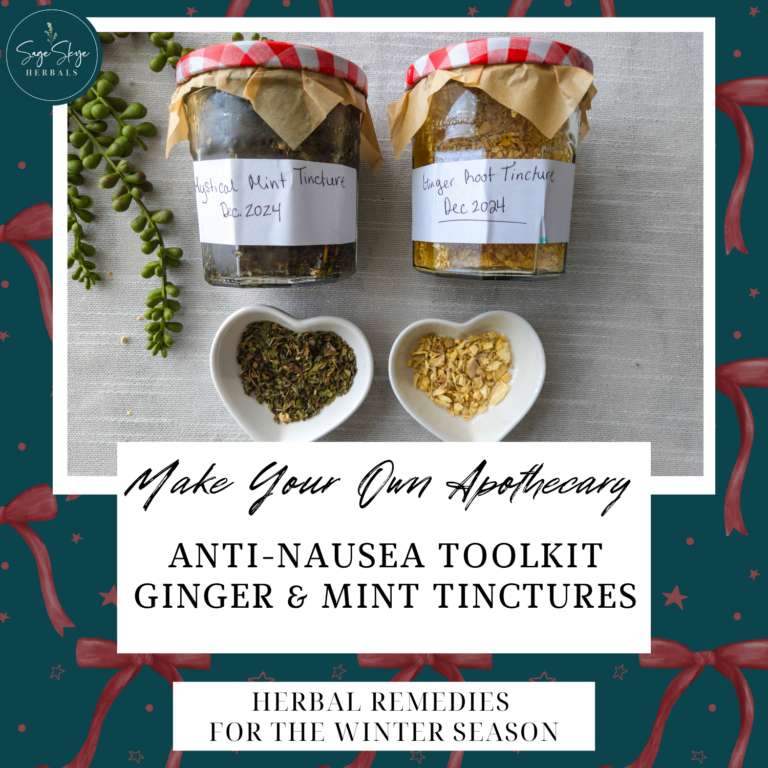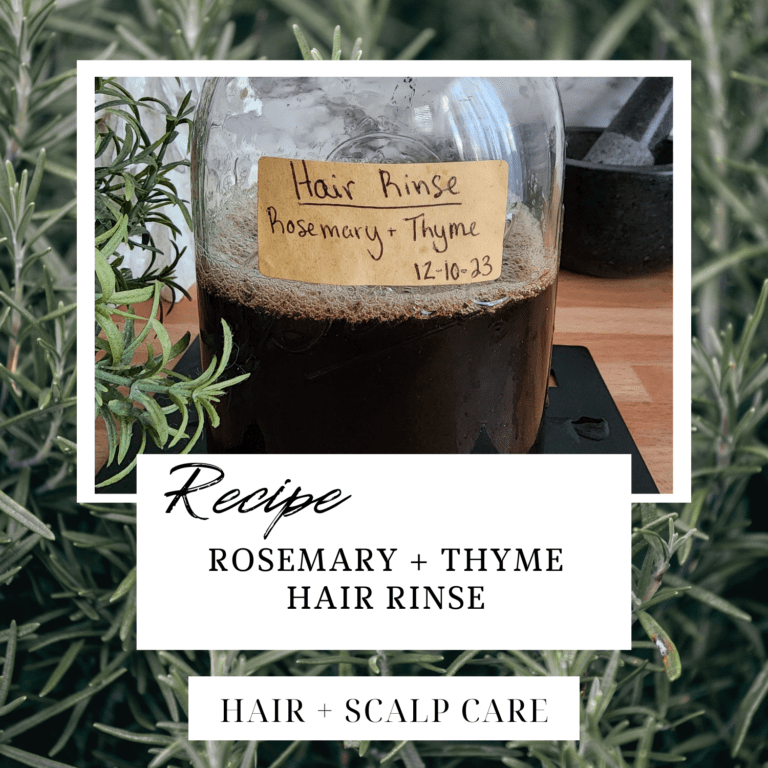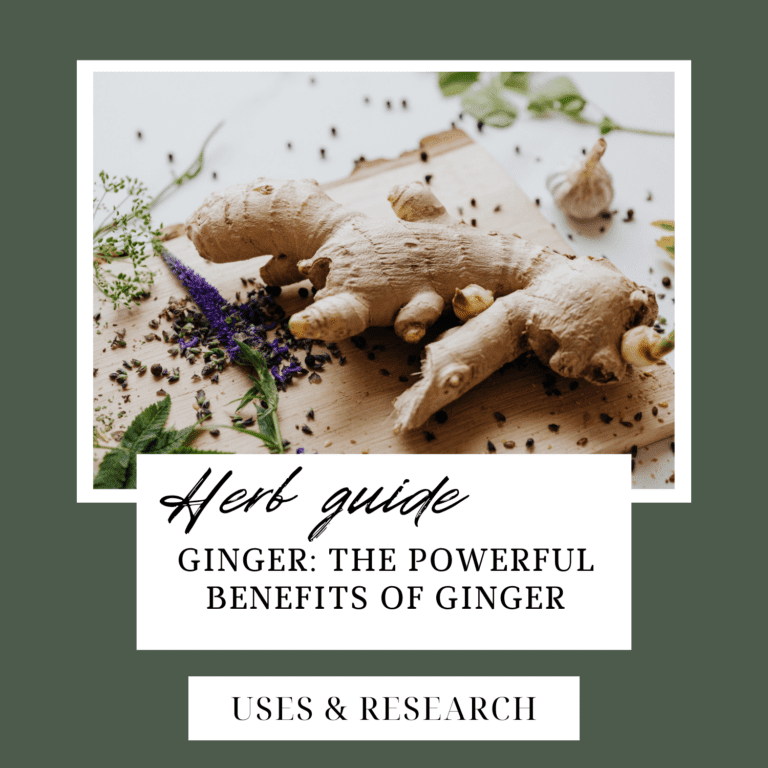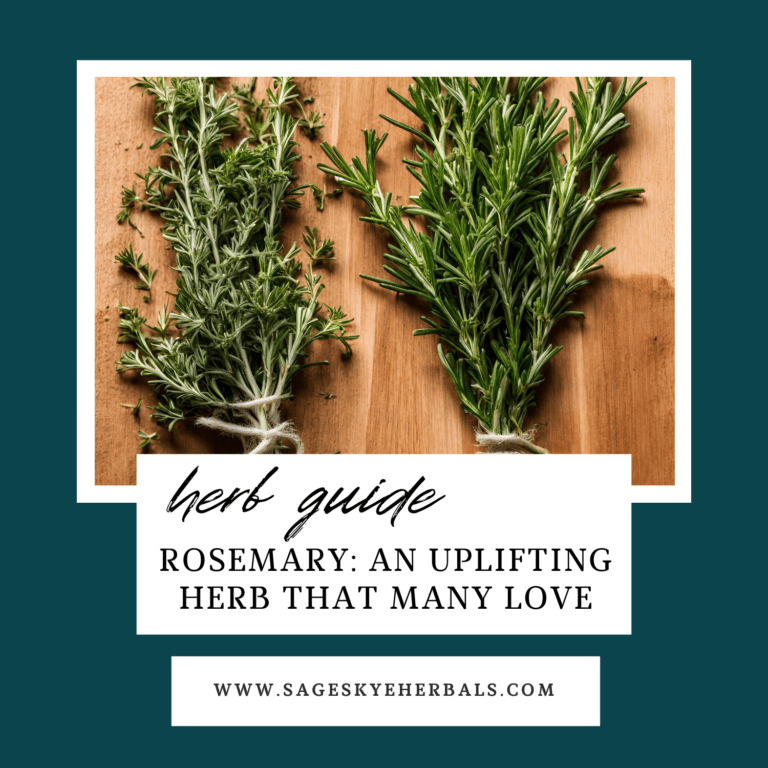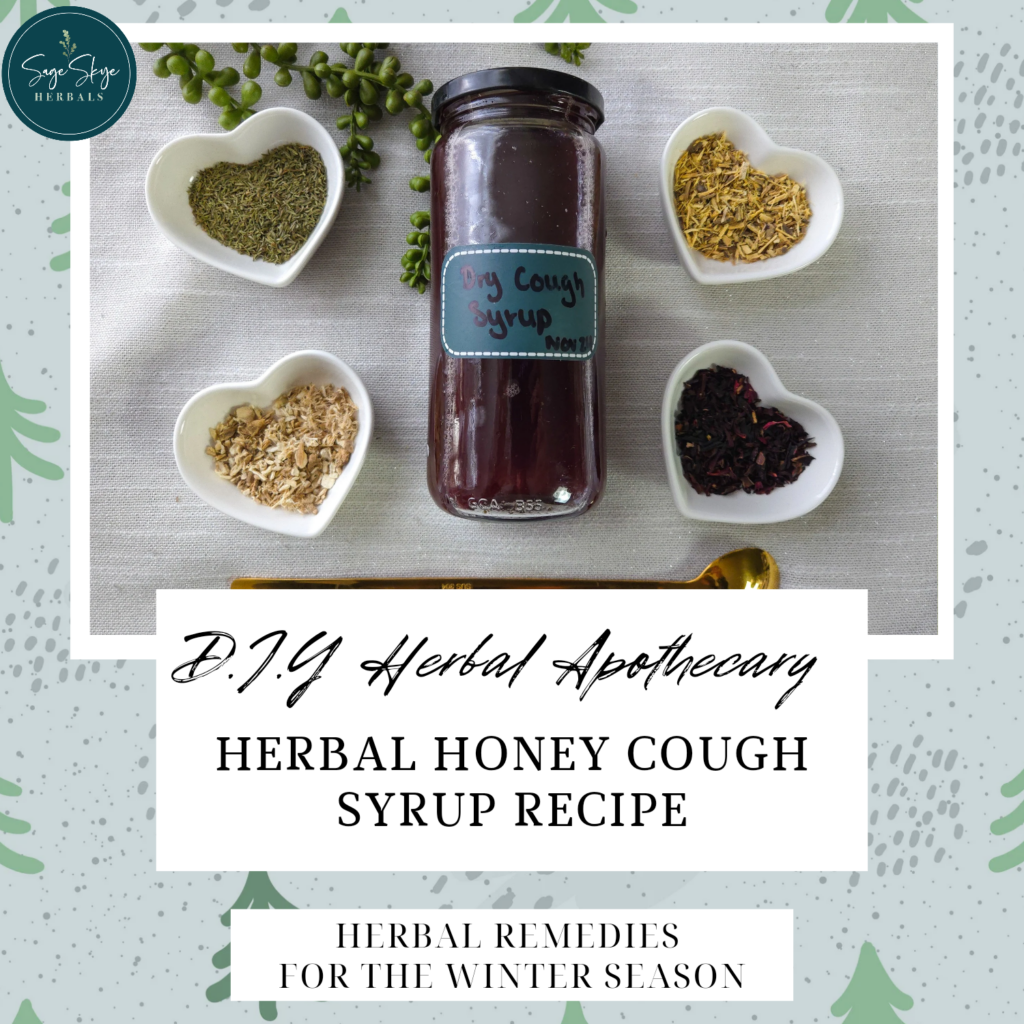
Make Your Own Herbal Apothecary- Herbal Remedies for the Winter Season
We are kicking off our new segment, make your own herbal apothecary at home. The first series in this new segment is herbal remedies for the winter season. These herbal remedies are specifically tailored towards symptom management of the most common complaints and ailments during the cold season. We will learn how to prepare herbal cough syrups, remedies for sore throats, natural fever reducers and more!
Herbal Honey Cough Syrup Recipe: A Soothing Remedy for a Dry Cough
A persistent dry cough or dry throat can be uncomfortable and frustrating, especially during seasonal changes or after exposure to irritants. Instead of reaching for over-the-counter remedies, why not try a natural approach first? Having options is the best position to be in when you don’t feel your best. This honey-based herbal cough syrup is a time-honored solution to soothe the throat, ease irritation, and support overall respiratory health.
In this week’s post, we’ll walk through the step-by-step process of making your own herbal cough syrup and dive into the benefits of each ingredient we are using.
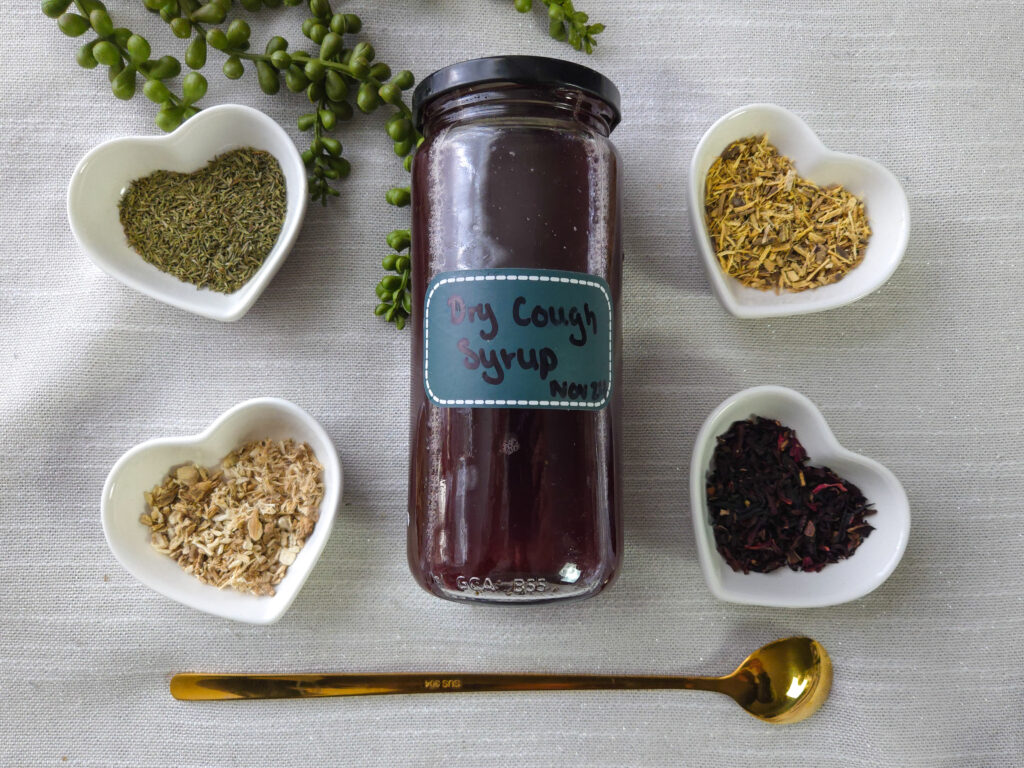
Why Choose a Natural Cough Syrup?
Herbal remedies have been used for centuries to address respiratory issues. Unlike commercial cough syrups that may contain artificial ingredients or suppressive chemicals, natural syrups work harmoniously and gently with your body to soothe irritation, provide nourishment to delicate tissues, and support your body’s natural healing processes.
This recipe features a combination of herbs with mucilaginous, antimicrobial, antispasmodic, and anti-inflammatory properties, blended into a honey base for a syrup that’s as effective as it is delicious. Keep in mind that if you are missing an ingredient, you can replace it with a similar herb or omit it from the recipe. The fun part about making your own herbal blends is once you know the herbal actions and constituents of your ingredients you can confidently make your own remedies with what you have on hand or what grows local to you!
Herbal Ingredients and Their Potential Benefits
Hibiscus Flowers
Properties: antimicrobial, antioxidant, antispasmodic, anti-inflammatory
Traditional Uses: Known for its bright red color and tart flavor, hibiscus is often used to support respiratory health and soothe inflammation. It also helps balance heat in the body, making it especially useful for irritated tissues.
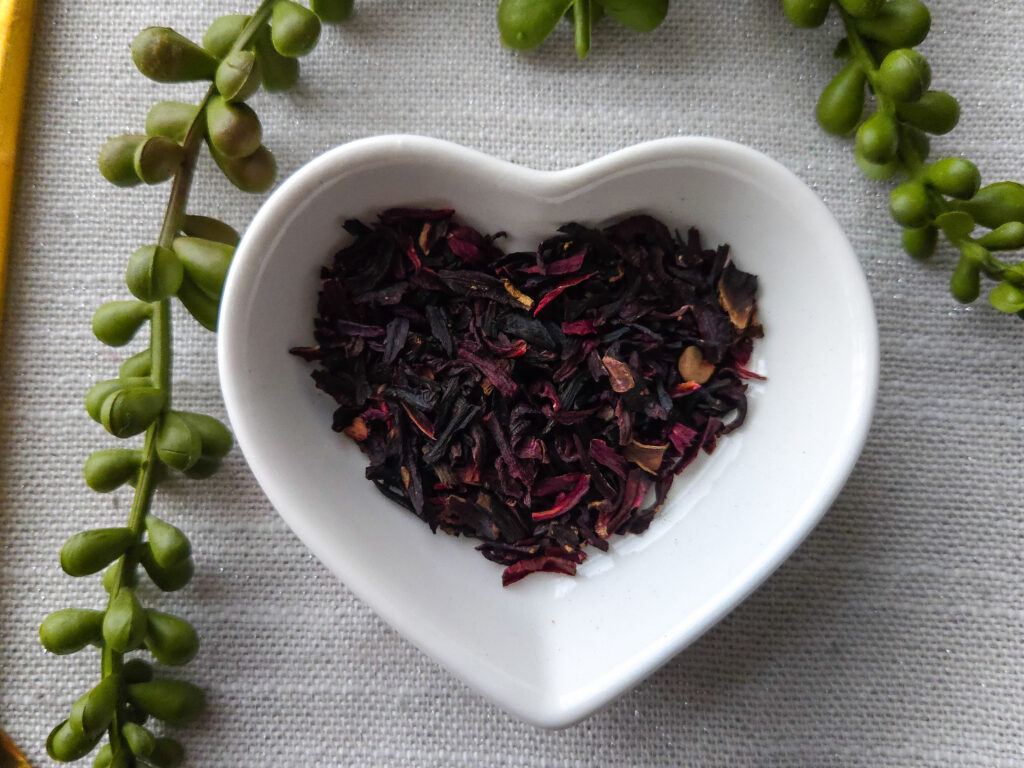
Thyme Leaves
Properties: antiviral, antibacterial, antifungal, antiseptic activities
Traditional Uses: This common kitchen herb is a powerful ally for respiratory issues and viruses. Thyme helps open airways, fights infections, and clears mucus, making it ideal for supporting clear and healthy breathing.
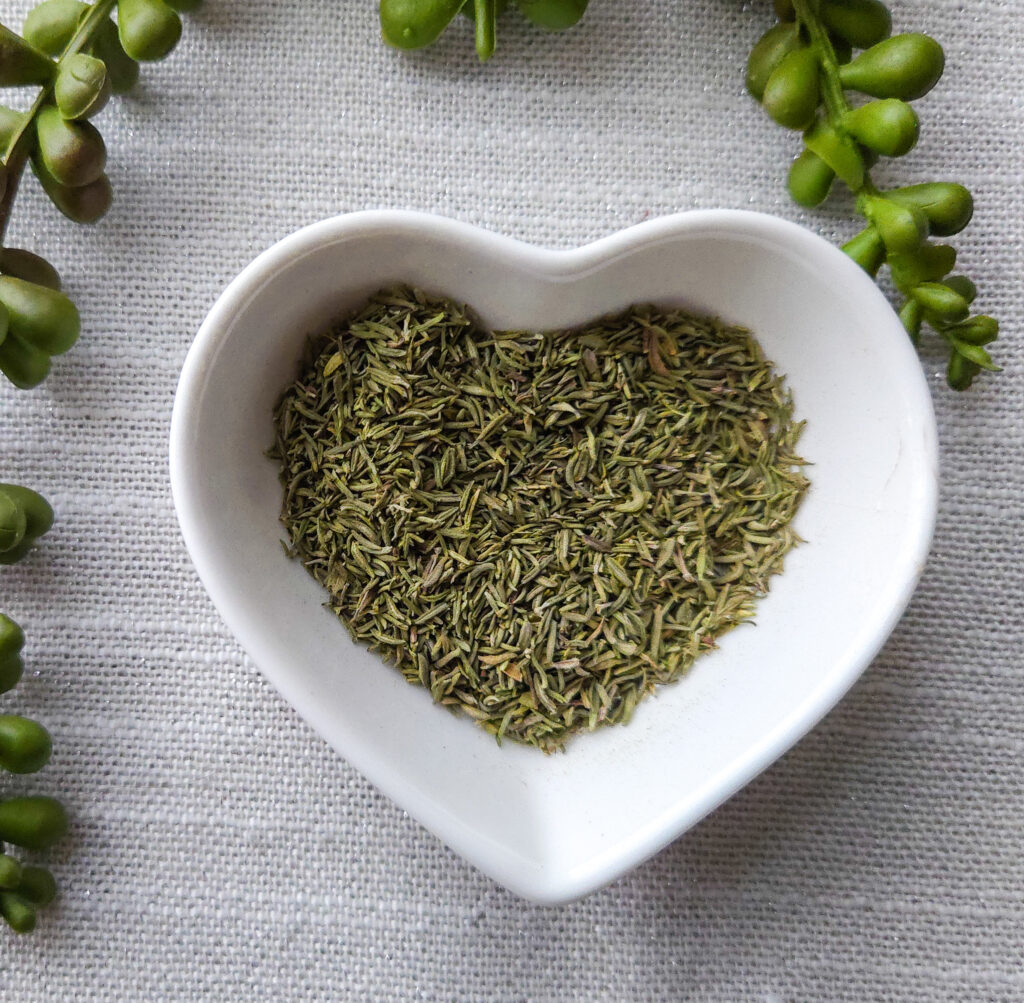
Licorice Root
Properties: antioxidant, antimicrobial, and anti-inflammatory
Traditional Uses: Licorice root has been a staple in traditional medicine for centuries. It soothes irritated mucous membranes, reduces inflammation, and provides gentle sweetness that complements the honey.
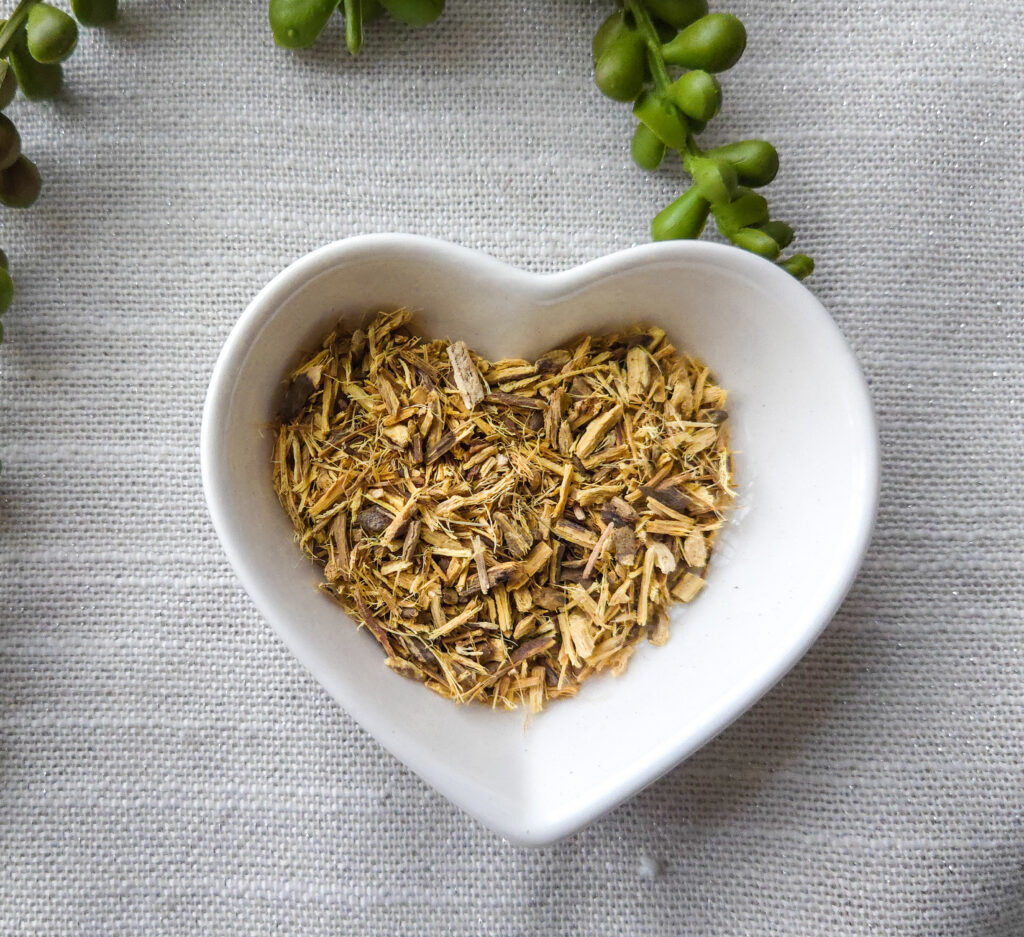
Marshmallow Root
Properties: demulcent , emollient , mucilaginous, anti-inflammatory, soothing.
Traditional Uses: Marshmallow root is renowned for its ability to coat and protect irritated tissues. It helps relieve dryness in the throat and calms persistent coughing.
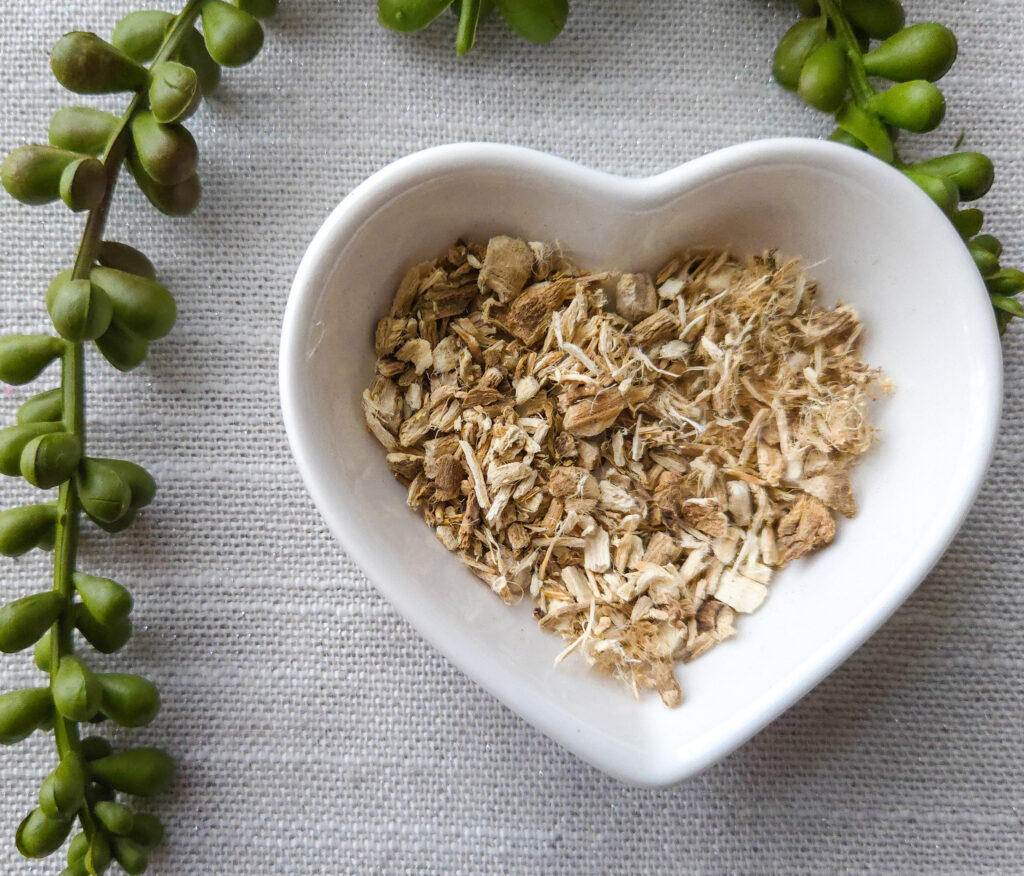
Raw Honey
Properties: Antibacterial, antioxidant, and soothing.
Traditional Uses: A versatile natural remedy, honey provides relief for sore throats, supports the immune system, and acts as a preservative for the herbal syrup. Its sweetness also makes the remedy more palatable.
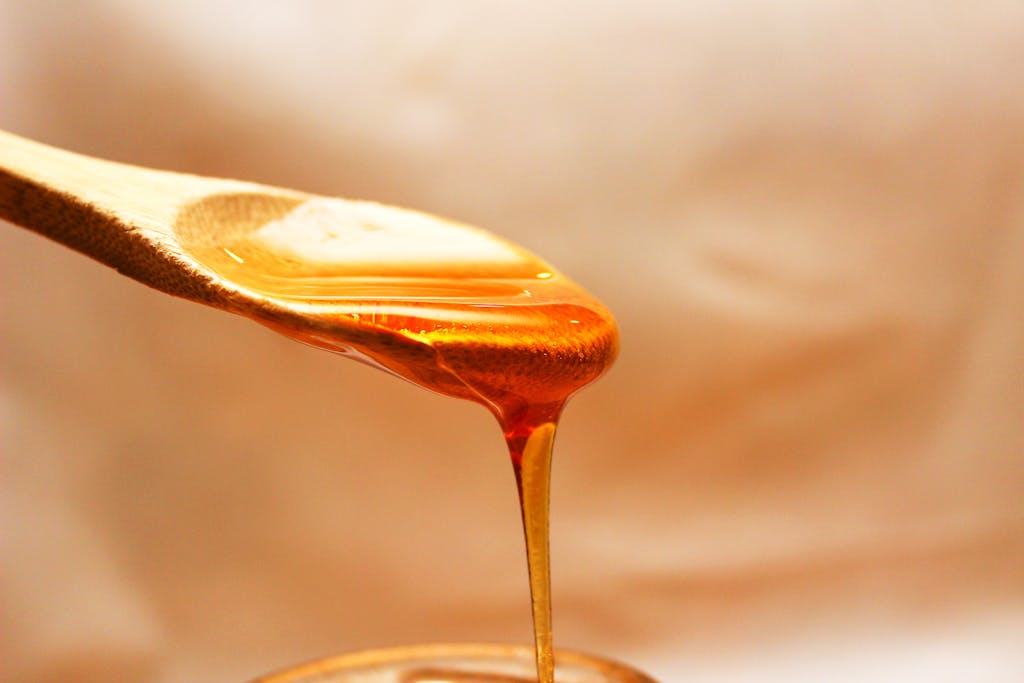
Step-by-Step Recipe: Herbal Honey Cough Syrup
Ingredients
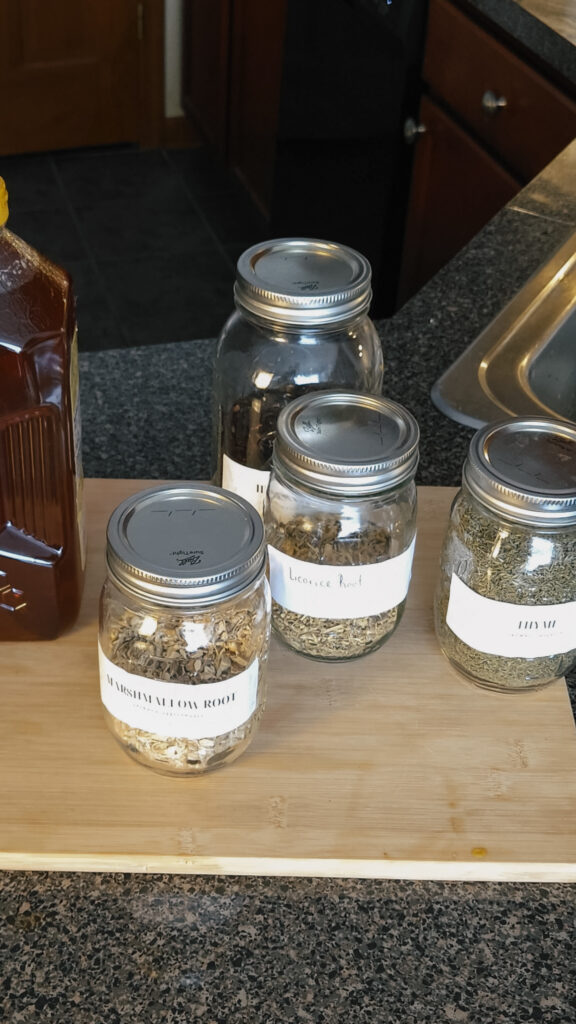
Instructions
Combine hibiscus, thyme, licorice root, and marshmallow root in a saucepan with 4 cups of water.
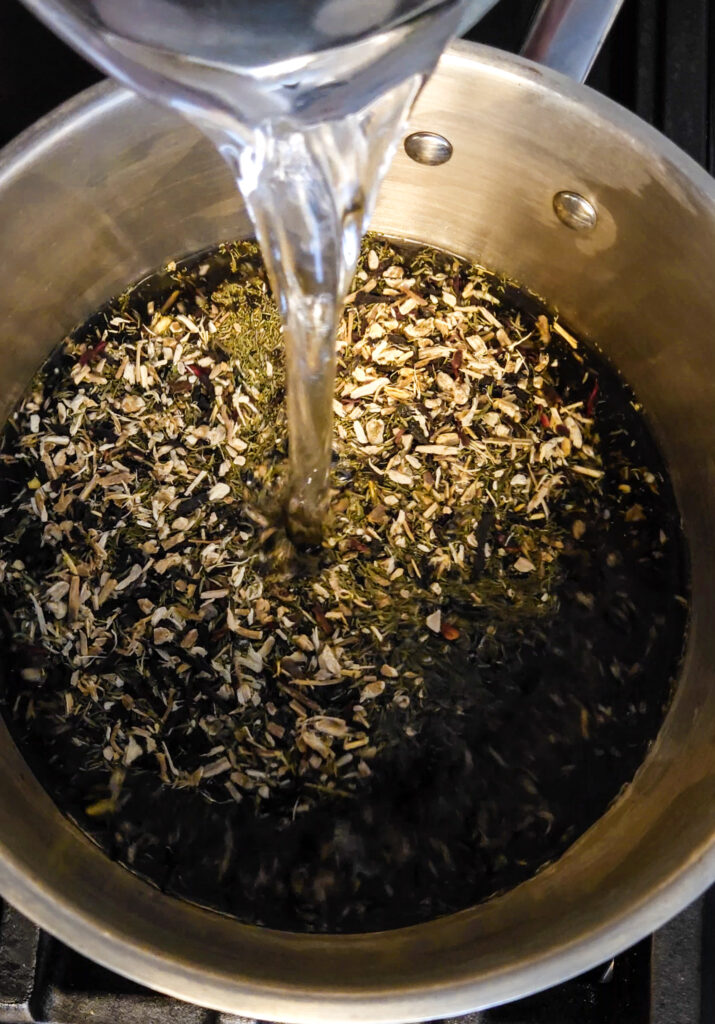
Bring to a simmer on medium heat, then reduce the heat to low. Simmer for 20–30 minutes, our goal is to reduce the water by half.
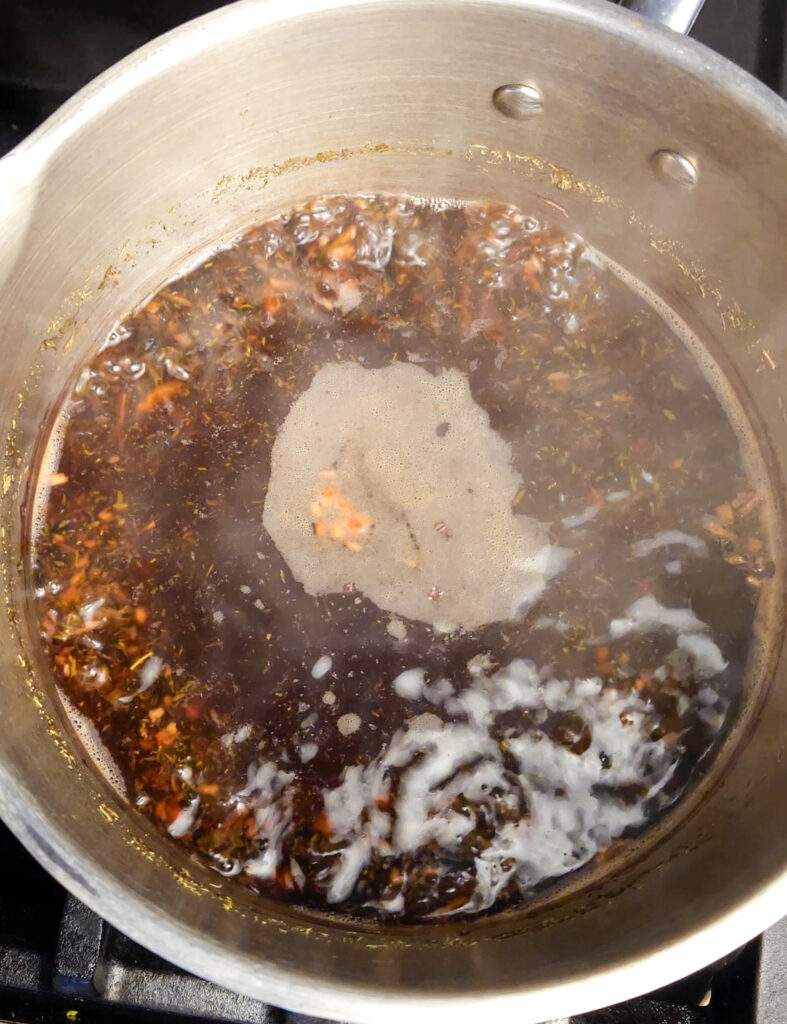
Strain the liquid through a fine mesh strainer or cheesecloth into a bowl or large measuring cup, pressing out all the herbal goodness.
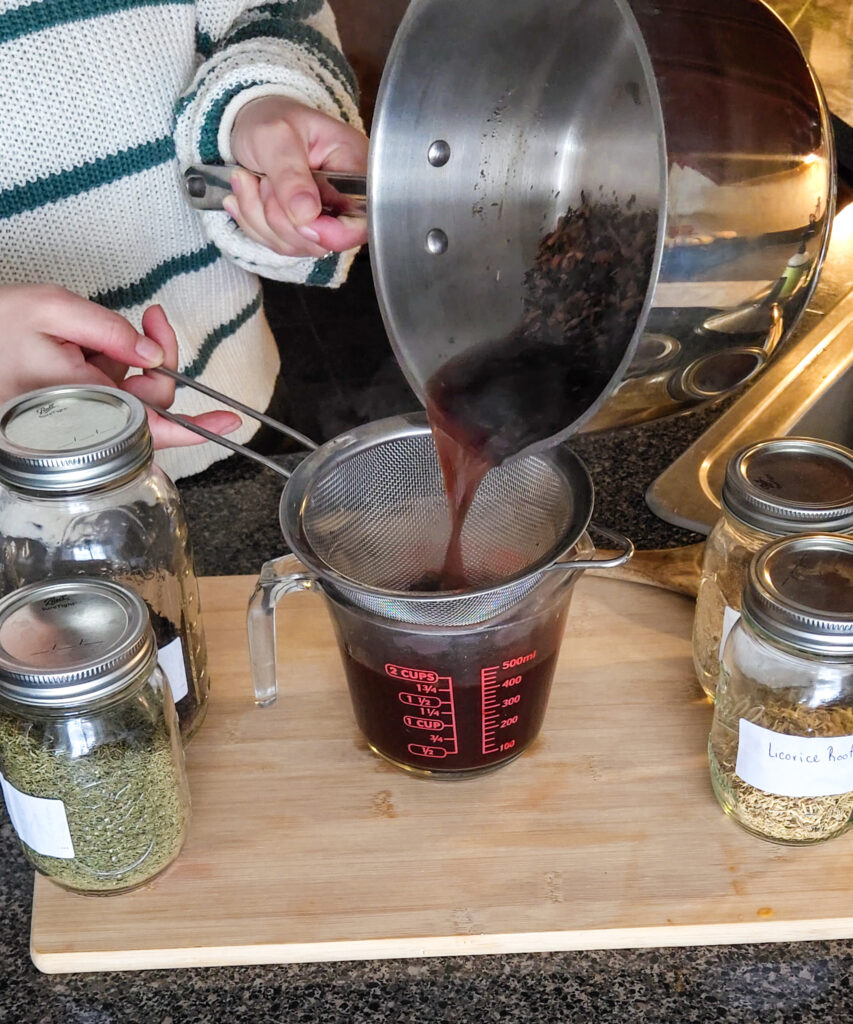
Allow the decoction to cool slightly. It should be warm but not above 110F to ensure the honey retains its beneficial properties.
Mix the decoction with raw honey in a 2:1 ratio (2 parts decoction to 1 part honey) or desired ratio for taste and shelf life. Stir until fully combined.
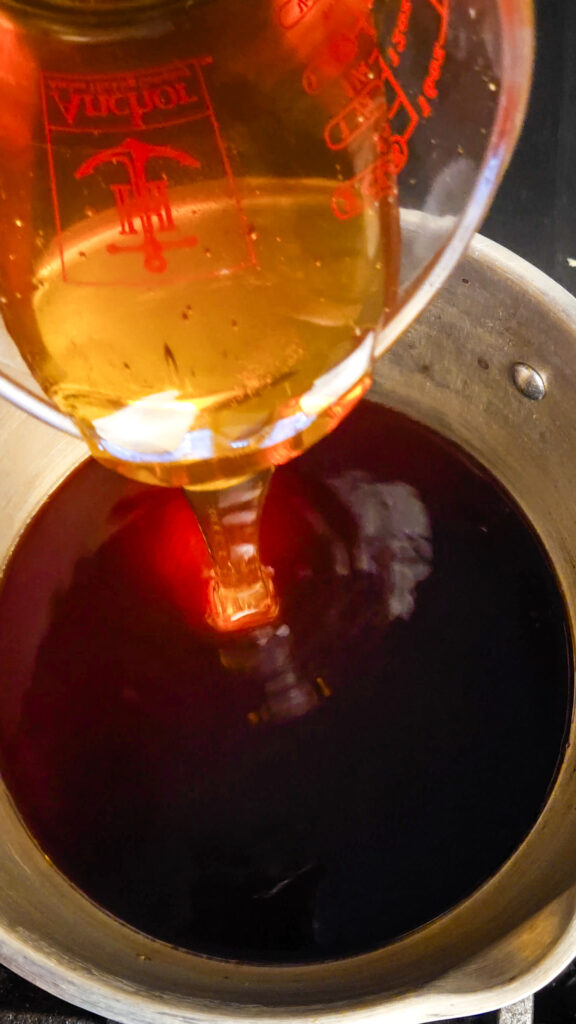
Transfer the syrup into a clean, airtight jar or bottle. Store it in the refrigerator.
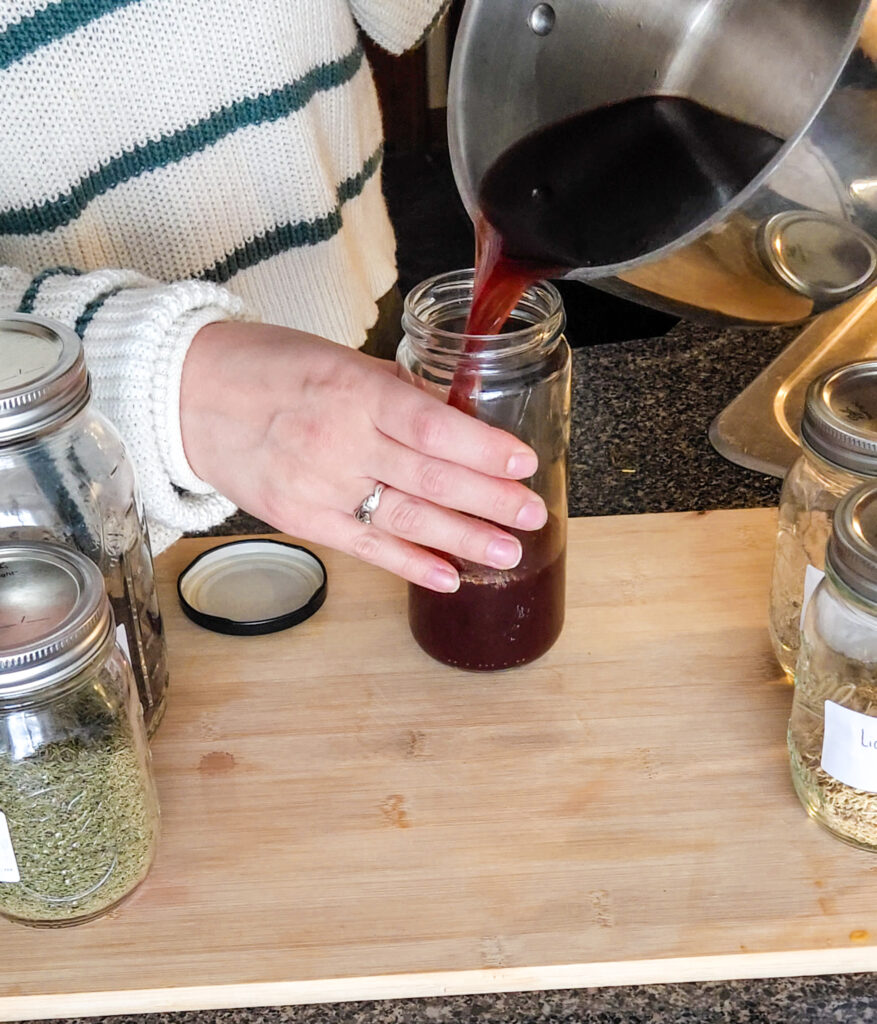
*Syrups should be refrigerated. Honey syrup made with a 2:1 decoction to honey ratio will typically last a few weeks; a 1:2 decoction to honey ratio may keep for up to one year.
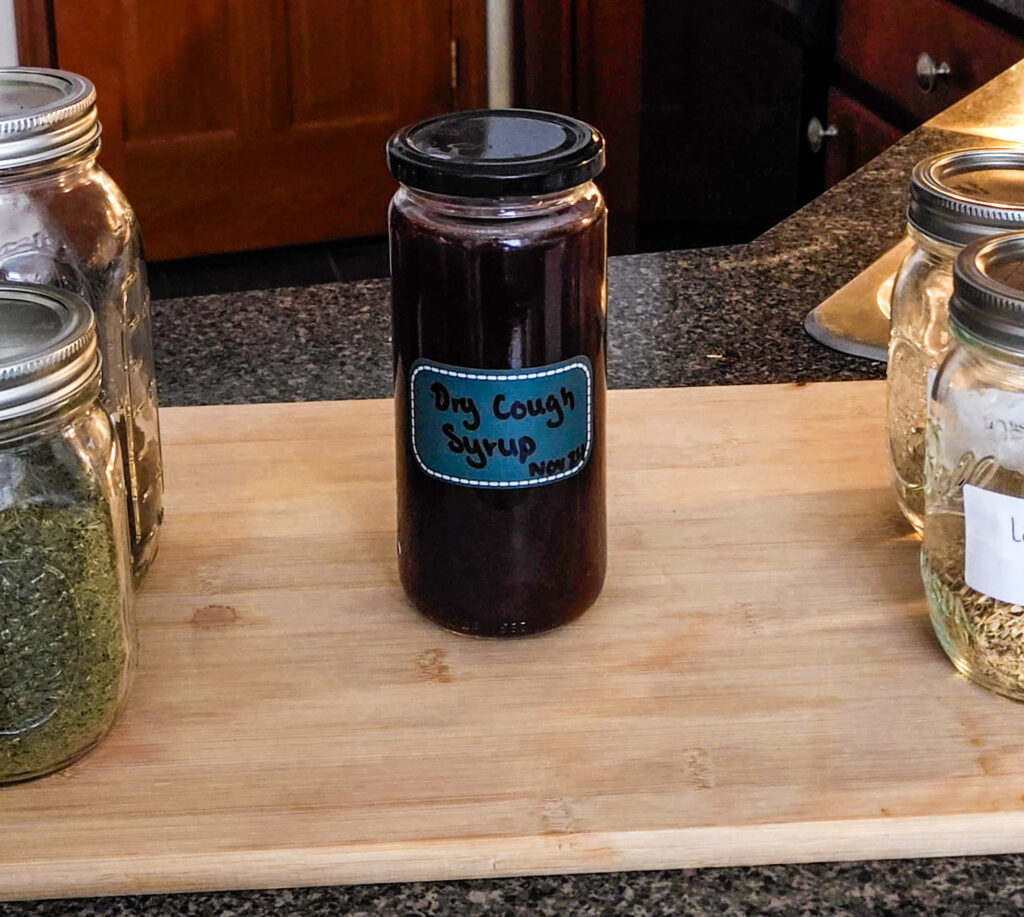
How to Use the Syrup
Take 1 tablespoon as needed to soothe a cough or dry throat a few times a day.
For children over the age of 1, use 1 teaspoon.
The syrup can also be added to warm water or tea for a comforting drink.
Why Decoctions Work Best for Root-Based Herbs
Decoctions are a traditional method of preparing herbs, especially roots, barks, dries berries and tougher plant materials. By simmering these herbs over low heat, you can extract their full range of beneficial compounds. In this recipe, decoction ensures the licorice root and marshmallow root release their soothing properties into the base liquid, making your syrup both effective and nourishing.
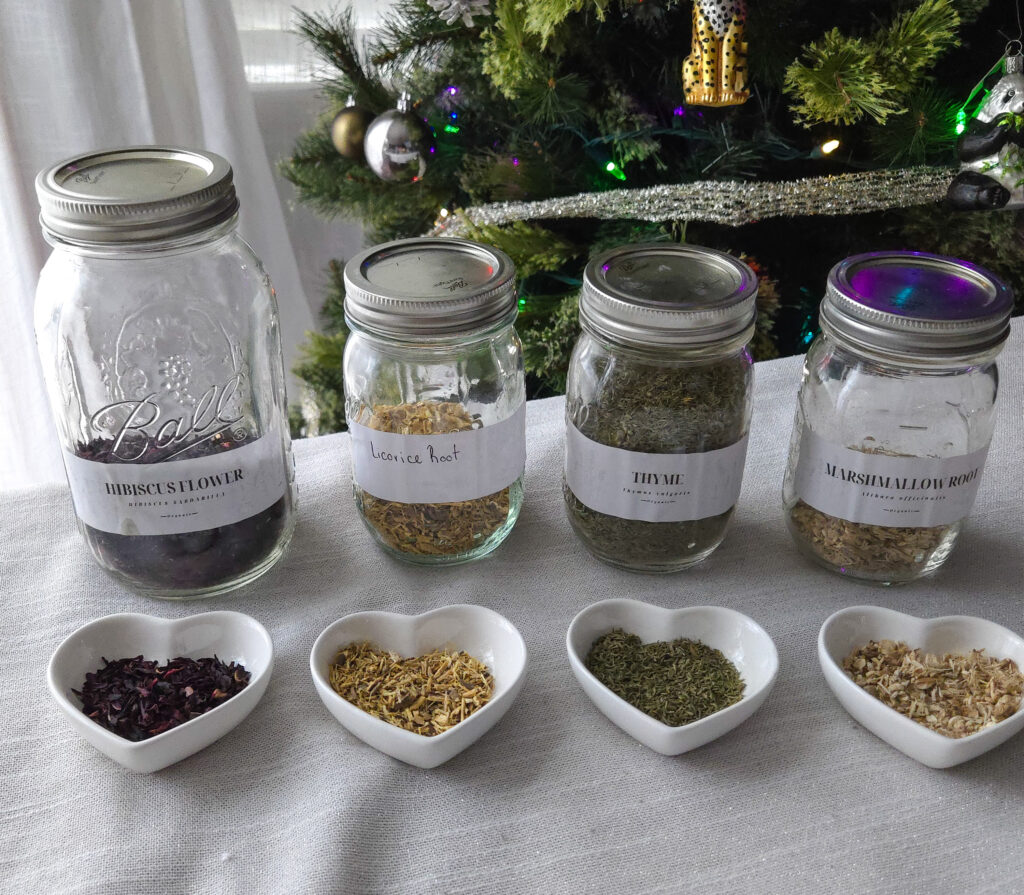
A Word of Caution
While this recipe is made with gentle herbs, always consult a healthcare professional if your cough persists or if you have underlying health conditions. Pregnant individuals and those with certain medical conditions, such as hypertension or hormone-sensitive disorders, should use licorice root with caution.
The Power of DIY Remedies
Crafting your own herbal remedies like this cough syrup is not only empowering but also a wonderful way to connect with the healing gifts of nature. Each spoonful of this syrup delivers a blend of soothing, nourishing, and protective properties to support your body’s natural ability to heal.



